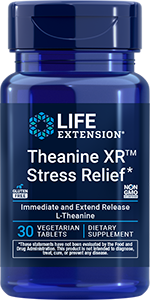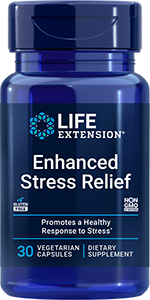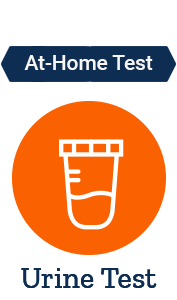Self-Help for Anxiety
Step 1
Learning self-care options through education.
Practicing self-help for anxiety involves different areas of practice that will require your full attention. Since anxiety affects both mind and body, it is important to remember that overcoming anxiety may take multiple practice steps and mastery of congitive-behavioral techniques. Recovery from anxiety, panic attacks, obsessive thinking (instrusive thoughts), and other stress related struggles rely heavily on repetition and having a planned approach. The Guided Steps to Recovery are provided for you and will help you navigate your way towards healing if you are pro-active and persistent in your own self-help practice.
Understanding it All
There is so much work to do when implementing those self-help methods for anxiety. But first, lets be sure that you understand what you are struggling with because when you really understand what you are dealing with you will be more likely to face your challenges without additional fears or insecurities. It is important to understand that when stress is chronic and goes untreated for long periods your mind and body's normal functions can begin to misfire. People often push themselves beyond healthy limits without taking time to manage the mental and physical stress in their own lives. As a result, the chronic stress they experience leads them into distressing physical and mental health symptoms. Although, stress is a normal part of life and a normal emotion felt by all people, too much stress (whether caused by good or bad stressors) can lead to a devistating avalanche of unwanted side effects in your mind and body. Things like anxiety, panic attacks, obsessive/intrusive thoughts, heart palpitations, insomnia, brain fog and other things can easily become the main focus and cause secondary fears.
Different Types of Stress
Stress can either be good or bad. Stress doesn't always have to be bad in order for it to negatively effect the mind or body. Too much of any kind of stress isn't good for you. Many people do not realize that there are different types of stress that have characteristics of their own. Mostly everyone knows what stress is but many do not understand the different types.
Positive Stress
This type of stress helps to keep life exciting and keeps us enthusiastic. Some examples of life events where you might experience this type of stress are getting married, having a baby, and even winning the lottery! You may even feel this type of stress right before a public performance or right before you participate in a sport. It is this stress that keeps life exciting and fulfilling. However, it is important to recognize that too much stress of any kind is not good for you and this includes positive, healthy stress. Positive stress, although is a good stress, can still wear down your body. If you are not careful and you ignore this part, you could easily fall into a negative category of stress. So be good to yourself by pacing yourself and taking breaks when you need them.
Distress
This type of stress has two forms, acute and chronic. This type of stress is entirely negative. Acute distress is usually from an immediate change or disruption to lifes normal routine. Such as an unexpected death of a loved one or a job loss. Chronic distress is usually from stress that is prolonged for extended periods of time. Chronic distress is caused by experiencing the symptoms of pain, misery, grief,suffering, etc. for extended periods of time. It is crucial that the person suffering from distress get help as soon as possible. Not only is it important to take vitamins and follow a stress management plan that is comfortable for you, but is is also very important to talk to your family physician. Do not be afraid to talk to someone!
Stress Overload
This type of stress is caused by overload. An overworked, overburdened lifestyle can cause this type of stress. It is not uncommon for people suffering with stress overload to be short tempered. It is important to realize that this type of stress does not happen overnight. Prolonged overburdened workloads contribute to this type of stress. Most times this type of stress can be avoided. In situations where it cannot be avoided, it is important to find help any way you can. Do not be afraid to ask for help! Respect yourself enough to slow down and listen to your body. It is common to experience stress overload in everyday life. Sometimes it begins with family stress, personal conflict, holiday stressors, stressful careers (such as first reponders, military life or even being a spouse of someone in the military), and/or maybe you work remote from home and are trying to management children and work at the same time, either way, not matter what it is, there are unique stressors for everyone. Learning to manage stress early on will be most effective in your journey to health and wellness.
Boredom Induced Stress
This type of stress comes from an under-stimulated lifestyle. Boredom is the most common culprit. It is amazing to think that doing nothing at all can cause this type of stress. and this type of stress is real and if experienced long enough can cause a person to fall into distress. Becoming proactive by finding something of interest and excitement helps. Find time to discover what you are good at, what you enjoy and focus on those things. You do not have to stay bored! DO something! Anything that is different and provokes challenge.
What's causing your stress?
We all experience stressful moments in our lives. No matter what is bringing us stress, there are ways to help us manage our stress better. Here are some common causes for stress that you might even recognize in your own life.
Tell Us Your Story
By telling your story, you are helping others see that they are not alone. Click Here to Share Your Story, and Encourage Others, and read about other people's experiences.
The Cause of Anxiety
Understanding the cause of anxiety will help you more than you realize. It is through this understanding that you will be able to personalize the skills needed for your own recovery journey. Believe it or not, PROLONGED STRESS IS THE CAUSE OF YOUR ANXIETY! By keeping your stress in check, you will keep your anxiety at bay! Anxiety is defined as "A painful or apprehensive uneasiness of mind usually over an impending or anticipated ill : fearful concern or interest : an abnormal and overwhelming sense of apprehension and fear often marked by physiological signs (as sweating, tension, and increased pulse), by doubt concerning the reality and nature of the threat, and by self-doubt about ones own capacity to cope with it."
What is considered an "anxiety disorder"?
When Anxiety is prolonged and interferes with how you do life, how you think, and how you feel - it is then called a "disorder". Although anxiety is a common emotion which may be shorted lived for many people, it is only when anxiety is chronic and interferes with the ability to cope with everyday life when it is considered to be a disorder. There are several types of anxiety disorders and each one has specific characteristics of their own. Some of the most common disorders are:
It is important to understand that although PTSD (Post Traumatic Stress Disorder) and OCD (Obsessive Compulsive Disorder) were once considered anxiety disorders, they are no longer considered anxiety disorders and now have their own diagnosis. However, it is important to also understand that although they are not considered "anxiety disorders" they CAN and OFTEN DO include anxiety and all the many anxiety symptoms that are included with anxiety disorders. So, all the information here on this website will still be of great benefit to those suffering with PTSD as well as OCD.
Outside of occassional stress and anxiety which is common to almost all people at one time or another, only a medical professional can diagnose you with a disorder.
Common Anxiety Symptoms
Anxiety has physical and emotional symptoms that can be very uncomfortable. Many times anxiety symptoms are overwhelming and scary, especially if you do not understand what is going on inside you. These symptoms alone can be the trigger for the "Fight or Flight Response", also known as the "Automatic Stress Response", this is when the body gets ready to protect itself by either fighting or fleeing. Fight or Flight is a normal and a very helpful response to real external threats, however, this response is not helpful when you are in situations that are not dangerous or threatening. When we feel the effects of the fight or flight response, we automatically assume there is a real threat and when we realize that there is no actual threat around us, we then fear that something is wrong inside of us and this is when fear becomes internalized and we began to fear there is something wrong with our bodies or minds.
Some of the most common symptoms of anxiety are:
A Common Misinterpretation
It is a common for a sufferer to misinterpret their symptoms and believe that there must be something more wrong with them other than just the simple experience of anxiety and/or panic episode. If panic attack episodes happen in a public place or during a certain event, the sufferer may interpret this to mean that they should avoid these situations and events in the future. This is exactly how phobias are born, especially the development of agoraphobia .It is important to note that agoraphobia is not the same as a panic disorder. There are many people with panic disorder that don't experience avoidance behaviors at all. However, all people with agoraphobia experience some type of avoidance that may cause panic and feelings of being trapped, helpless or embarrassed. Anxiety and Panic can be physically and emotionally debilitating, especially when it continually disrupts the normal flow of everyday living. This is why it is super important to SEEK HELP in the early states of anxiety and panic. The earlier you rule out physical causes and understand what you are dealing with, the faster you will work to overcome it and limit it's affect in your life. Studies show that when early intervention is initiated, the chance of developing Agoraphobia are much lower and most of this is due to early education. What keeps many people stuck for months or years with a panic disorder is their lack of understanding and misinterpretations of their body symptoms. So, don't put off the dreaded doctor visit! Why suffer longer than you have to? Why prolong proper understanding about what's going on inside YOUR OWN body and mind!?
Make an Appointment with your Family Physician
It is important to note that anxiety and panic can be the result of MORE SERIOUS HEALTH ISSUES. Both anxiety and panic can be a symptom of a REAL PHYSICAL CAUSE. Some of these physical causes are:
ALWAYS check with your doctor when experiencing excessive anxiety or panic attacks that do not fall in line with accumulated stress. ALWAYS rule out physical causes before taking it upon yourself to self-diagnose and self-treat. Unfortunately, anxiety and panic disorder sufferers are known for spending hours researching their symptoms and looking for more explainable reason for their symptoms. No matter what any doctor says, ALWAYS advocate for yourself. If you have been seen by a doctor and are still not convinced that it's "all in your head", then PLEASE do not give up on getting answers for yourself. There are people who have gone many years being told "it is just anxiety", only to find out year later there was an actual, physical cause. You know yourself better than anyone, so if you are not happy with your answers, then get a second and third opinion. Never give up on yourself!
On the other hand, some find it hard to believe that the symptoms they feel could only be a result of accumlated stress and anxiety. It is not uncommon for Hypochondriasis to set in and for the sufferer to worry about every sensation they feel, even normal everyday body sensations. They are always looking for reasons for the way they feel instead of accepting it for what it is. The suggestion here is to MASTER the Cognitive-Behavioral Therapy Self-Help techniques WHILE you work to figure things out, because even if you have a real physical cause, the skills taught in this website will still help greatly while you work to advocate for yourself and your own health.
So what are your options?
Once you visit your doctor and rule out more serious causes for your symptoms and you have been diagnosed with having either an anxiety, depressive or panic disorder, you will then have some important choices to make about how you will begin to help yourself. Anxiety treatments will always vary depending on the person, but knowing what they are will help you make more informed decisions for yourself.
You should NEVER be on medication without also being in some type of therapy for your anxiety and/or panic. So often doctors prescribe anti-depressants and anti-anxiety medications without therapy and because of this patients might find temporary relief but will find themselves struggling again in the future because they never learned the skills to stay balanced and healthy. As the old saying goes, "An ounce of prevention is worth a pound of cure!" The more you know and practice, the better off you'll be with your mind and body!
Is Psychiatric Medication Necessary?
The short answer is, NO! Many family doctors want to put their patients on medication right away. You must know that medication is a PERSONAL CHOICE. Fact is, you can recover WITH OR WITHOUT prescription medication. It is important to note that you should NEVER be on medication without also being in some form of professional therapy with a qualified therapist. Family doctors, although they can write you a prescription, they cannot help you deal with core problem. In fact, many times, when patients are on these medications without being in therapy, they end up being on them for years without any resolution to their problem. Always seek professional help from a specialist whenever you are taking any kind of psychotropic medication.
Most people will be happy to know that there are alternative anxiety treatments to medications. Believe it or not, there are many natural supplements that work well alongside talk, exposure and cognitive-behavioral therapies. Many have already found relief through these specific supplements.
Talk, Exposure, and Cognitive Behavioral Therapies
All these therapies can be done with a professional or through your own self-help for anxiety program. They are very effective and work well together to accomplish a well rounded approach towards your own recovery.
Keep Your Attitude In Check
In order to be successful at anything you need to remember the importance of a healthy, balanced, positive attitude. Whether something is successful or not, how you talk to yourself and your attitude about your situation matters more than you know. If something isn't working, be sure to keep things in proper perspective. Do not belittle yourself and become pessimistic about your situation. These things are self-defeating and will only serve as a road block to your success. So, before you even begin working through your anxiety treatment options, make sure you are keeping an open mind and a healthy attitude. There are many benefits of keeping a positive attitude. Remember, anxiety cannot win as long as you don't give up, so hang in there and keep working to master the skills necessary to overcome it! Sometimes, the longest journey begins with the first step!
Your Options, Your choice!
Whether you choose to recover on your own through self help methods, or you choose to work with a professional; Or whether you choose to use conventional anxiety medications or natural remedies for anxiety; whatever you choose to do for yourself is a personal decision that only you can make for yourself. Whatever you decide to do for yourself, be confident in knowing that you are in control over your life and your own decisions. There are no right or wrong decisions, there are only options that will either work well for you or won't. It is easy to become frustrated when particular anxiety treatment options do not work for you. However, I just want to encourage you and tell you that sometimes trying these different things is what helps you sort through the junk. Try to look at unsuccessful treatments as a way of ruling out what you don't like or don't want to use.
What will you do?
With so many anxiety treatments before you, you can now make healthy decisions for yourself. But if you still don't know, take your time to do some research because the more you know and understand the better you will be able to make the best choice for youself.
Recommended Reading
These classic books are a MUST READ for anyone suffering from anxiety, panic attacks, and avoidance behaviors.
Step 1 Actions:
- 1. Learn all you can. Read all the information provided to you on this page. Be sure to write down any questions you might have in a notebook and then research for the answers.
- 2. Call your family doctor and make an appointment for a physical examination.
- 3. After you have seen your doctor and/or know how you would like to proceed, it's time to move ahead to Step 2 - Journaling. Do not move forward until you are ready!
Guided Steps to Recovery
Natural Supplements
Want to recover without using medication? There are many different kinds of supplements that are available and very effective in helping people combat the physical symptoms of anxiety.


